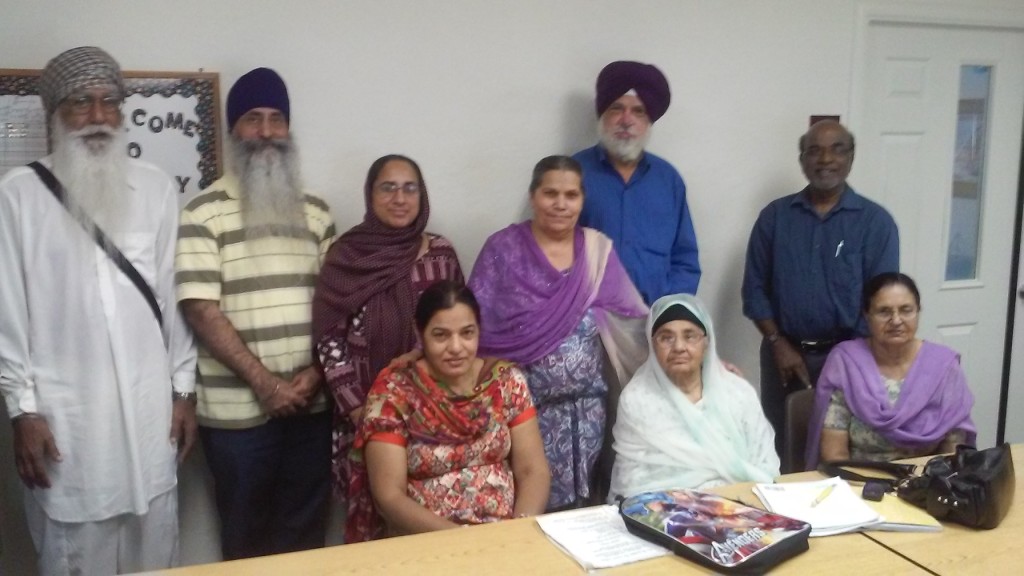After a breakfast of eggs and toast, I asked my friend Wilson if I could tag along and observe his morning class for the Indians who had been coming to his friendship center. All of them first generation immigrants (meaning, to put it simply, that they came not as infants or teens, but full adults), they were preparing to take the test for U.S. citizenship. They were Sikhs, and were well educated back home in their own language and culture. But I was about to be reminded of something I already knew from personal experience: Former competency does not make easy work of new challenges.
I was caught off guard when Wilson announced to the early arrivers that I would be playing the role of officer giving the citizenship exam! Say what?! “It will be easy,” Wilson assured, “I’ll tell you what to say.” Right. So the class assembles and, having been instructed, I ask the candidate, one by one, to state his or her full name, raise right hand and promise to tell the truth. “What is truth?” I ask, as instructed. “Honesty,” they reply. I ask, ”Why do you want to become a U.S. citizen?” They reply that it is a good country, with freedoms, and the right to vote. Round and round the table I go, asking prescribed questions and giving them a chance to get used to my American accent.
I was struck with how difficult it was for them to grasp the questions. Even when they did, they worked so hard to recall an acceptable answer.
“What is one reason colonists came to America?”
“Why did the colonists fight the British?”
“What are two ways Americans can participate in their democracy?”
“When must all men register for the Selective Service?”
“Name a U.S. territory.”
They are responsible to know the answers to 100 questions like these, any ten of which can be asked them in the oral exam. Miss more than four and they fail. As I read the questions, I found myself thinking that many American citizens don’t know their system of government, the total number of representatives, the name of their representatives, or the Presidents in office during WW1 and WW2!
On top of that, these applicants must hear and understand the question in a language they are struggling to learn, and answer quickly with pronunciation the examiner can decipher.
All this points to the true help that Wilson and his wife Mary, plus a few volunteers from nearby churches, are providing these newcomers. My hat is off to them, for they have labored faithfully for 20 years. Lord, raise up more workers to minister in the hundreds of cities where our new neighbors would truly love a helping hand.
After the citizenship session, Wilson asked me to wear a different hat. But that story will need to wait for the next dispatch.
#NearFrontiersTREK
![]() Tweet This My experience tutoring immigrants for their citizenship exam was an eye opener.
Tweet This My experience tutoring immigrants for their citizenship exam was an eye opener.
